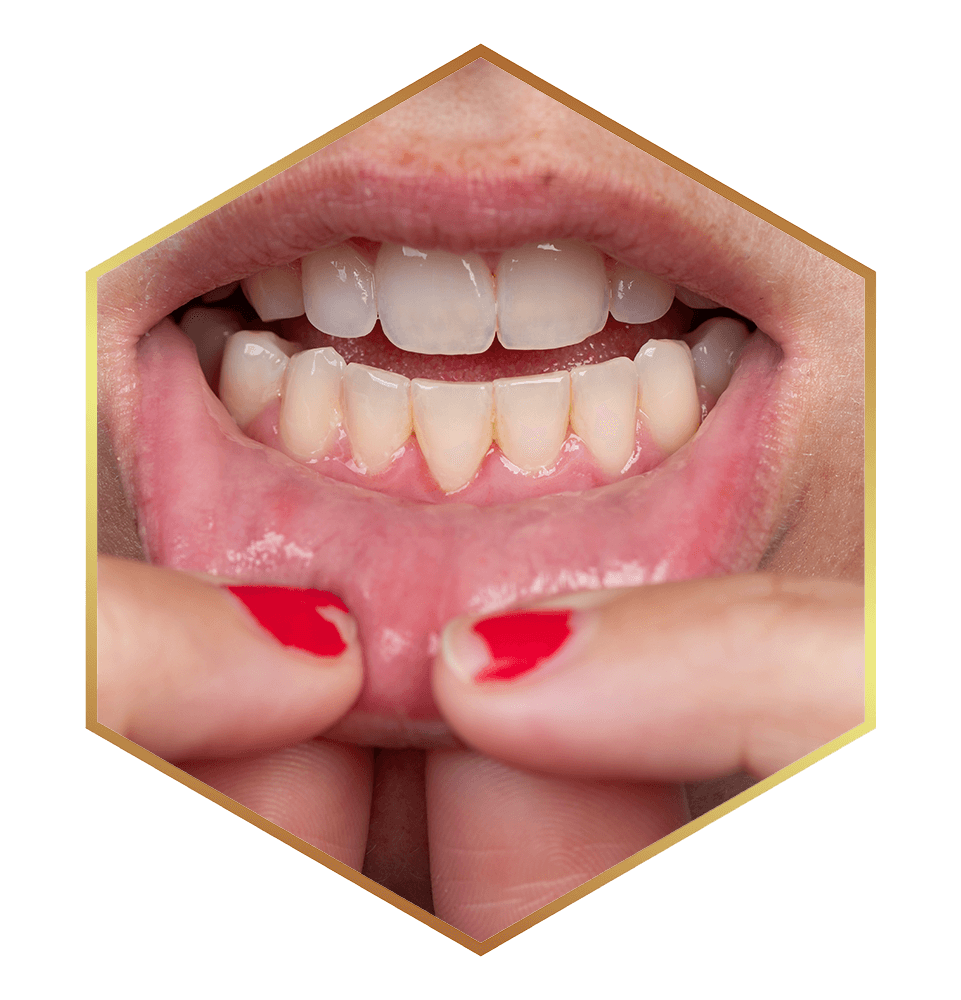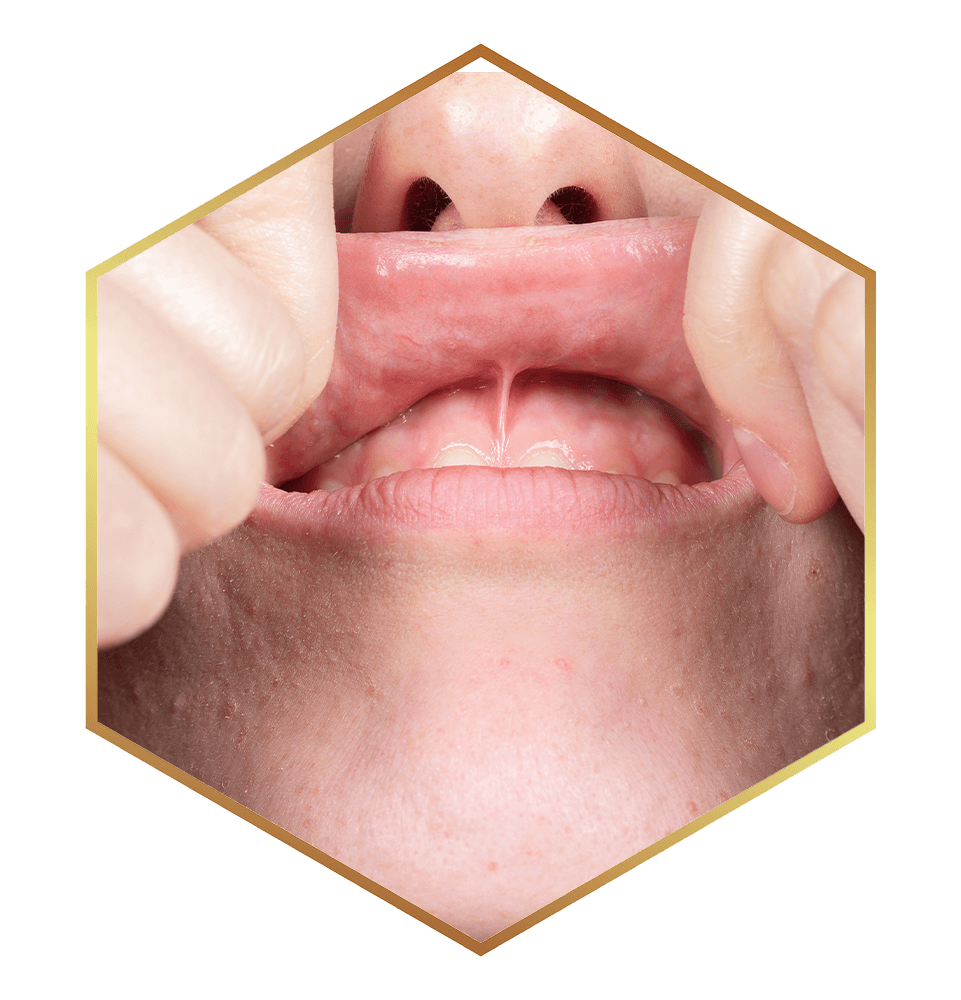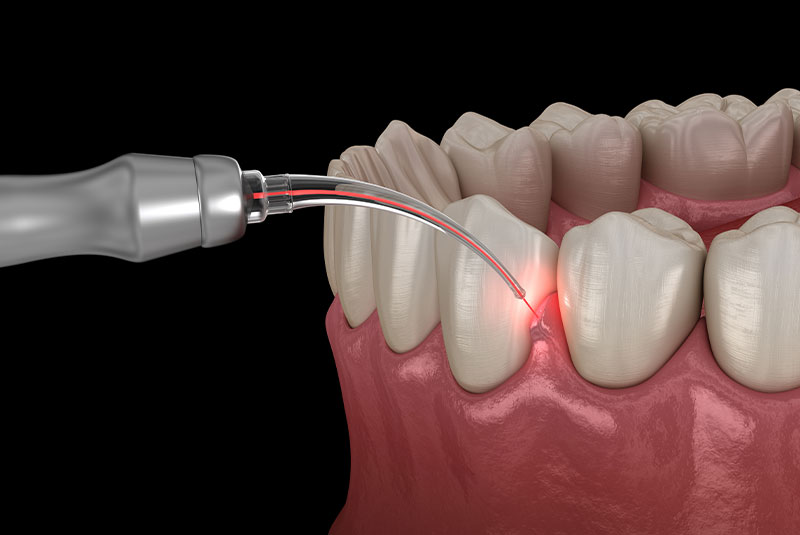
A frenulum or frenum is a small tissue fold connecting two structures in your mouth. You may wonder why this small connective tissue matters. The primary function of this connective tissue is to keep the lips and tongue in harmony with the growing bones of the mouth during development so that abnormalities can cause many problems.
Whether you’ve been told your little one needs tongue-tie surgery or an older child is experiencing sleep or speech issues, Dr. Kathleen Schuster diagnoses and treats problematic frenula in infants to adults with a frenectomy in Melissa, TX. It’s also important to our team that you understand the implications of a restrictive frenulum and how Dr. Schuster can help. At Magnolia Ridge Dentistry, we never want to see anyone struggle with issues tied to an abnormal frenulum when gentle laser treatment can nip these problems in the bud!
Whether you’ve been told your little one needs tongue-tie surgery or an older child is experiencing sleep or speech issues, Dr. Kathleen Schuster diagnoses and treats problematic frenula in infants to adults with a frenectomy in Melissa, TX.
While most frenula (plural of frenulum) are normal, a restrictive frenulum can cause many issues in babies, toddlers, and adults.

A lingual frenum connects the tongue to the lower part of your mouth. Typically, the lingual frenulum separates before birth, giving the tongue a free range of motion. Tongue tie (ankyloglossia) is a condition present at birth that restricts the tongue’s range of motion due to an unusually short, thick, or tight lingual frenum.

The upper labial frenum connects your upper lip to your mouth, while the lower labial frenum connects your lower lip to your mouth.
If your baby struggles to latch on, has trouble staying latched, or seems frustrated during feeding, it could be a sign of a tie. You might also notice clicking sounds while they nurse.
Tongue ties and lip ties can make it difficult for babies to transfer milk effectively, leading to slow weight gain.
If you find your milk supply is decreasing, your baby may not be removing milk efficiently due to the anatomical difficulties created by a tongue—or lip-tie. A shallow latch will also cause inefficient milk removal.
As your child grows, a tie could affect their speech development and cause a delay. They might have trouble pronouncing certain sounds, especially those that require extensive tongue movement.
Can your little one easily stick their tongue past their lower teeth? Or does their upper lip seem restricted when they try to flare it? Limited movement in these areas can be a sign of a tie and hurt the growth and development of facial tissues, resulting in an open-mouth posture and poor swallowing.

Now that you’ve learned the possible symptoms of tongue-ties and lip-ties, it’s easier to understand the potentially negative implications of leaving restrictive frenula untreated. From the emotional and physical repercussions of breastfeeding struggles—to speech delays, dental woes, open-mouth breathing, and sleep apnea, this little connective tissue can have a significant impact on quality of life! The good news is that a simple lip-tie or tongue-tie surgery in Melissa, TX, can prevent issues or alleviate existing problems with little downtime!
Issues potentially associated with tongue-tie include getting tired after talking, mumbling or stuttering, or having a history of speech therapy as a child. Restricted tongue mobility may affect the pronunciation of consonants and the sounds of S, Z, T, D, J, L, CH, ZH, TH, DG, and R.
Restricted tongue and lip mobility can impact the growth and alignment of the teeth and jaws. A tongue tie may cause malocclusion (misalignment), such as an open bite. A tongue tie can also make removing food debris from these teeth more difficult for an older child or adult. This can contribute to tooth decay and inflammation of the gums (gingivitis). Lip ties can cause a gap between the two upper front teeth and crowding of adjacent teeth.
Adult tongue ties can cause head and neck tension, headaches, migraines, and jaw pain, all of which are common signs of temporomandibular joint dysfunction.
Adults with tongue ties have issues licking their lips, kissing, eating ice cream, discomfort under the tongue, and tongue cuts from their teeth.
A limited tongue range can make simple tasks such as chewing food in a reasonable amount of time or swallowing pills more challenging.
If you or your partner are awakened at night by loud snoring, a tongue-tie may be the underlying cause.

Dr. Schuster uses state-of-the-art laser technology to perform frenectomies. During this minimally invasive procedure, a gentle laser releases the tight frenulum. A laser frenectomy in Melissa, TX, often takes just a few minutes, with minimized discomfort and bleeding compared to traditional methods.
Because the laser seals tissue as it cuts, it lessens bleeding and the risk of infection while delivering faster healing, enabling your little one (or you) to return to normal quickly. In addition, the laser offers incredible precision, allowing Dr. Schuster to target the exact area with little impact on surrounding tissue.
A: In most cases, no anesthesia is needed for a laser frenectomy. While the procedure is quick and has minimal discomfort, Dr. Schuster will discuss all options with you during your consultation to ensure your child’s comfort.
A: Dr. Schuster will provide detailed aftercare instructions following the frenectomy. Mild soreness or tenderness in the area is expected. She may recommend using a soothing oral rinse or pain relievers appropriate for you or your child. Maintaining good oral hygiene is important to promote healing and prevent infection, so gently cleanse the area with a soft toothbrush and water, as instructed. For a short period after the procedure, Dr. Schuster may recommend avoiding certain foods or drinks that could irritate the healing tissue. She’ll provide specific guidance based on your unique case.
A: Improvement in feeding difficulties can vary depending on the severity of the tie and your baby’s appetite. Latching and milk transfer improve immediately in some babies, while others may take a little longer to adjust. The following tips are helpful for breastfeeding after an infant or baby frenectomy at Magnolia Ridge Dentistry:
– Frequent nursing sessions can help stimulate milk production and allow your baby to practice their new latch.
-A lactation consultant can offer support and guidance as your baby adjusts to feeding after their frenectomy.

As a functional and holistic dentist, Dr. Schuster brings unique skills to diagnosing and treating oral health issues that impact the entire body. To expand on the breathing and sleep-related issues already mentioned, a tongue-tie may impede or inhibit airflow, especially during sleep.
Due to restricted motion, the tongue may become partially blocked in its normal position, which can cause snoring, mouth breathing, and even sleep apnea in children and adults. The latter is associated with many symptoms and serious health implications. In addition to a frenectomy to ease respiratory and sleeping symptoms, Dr. Schuster works with a myofunctional therapy expert to help patients retrain their tongues and restore normal breathing patterns through exercises done at home.
I understand the information disclosed in this form may be subject to re-disclosure and may no longer be protected by HIPAA privacy regulations and the HITECH Act.
